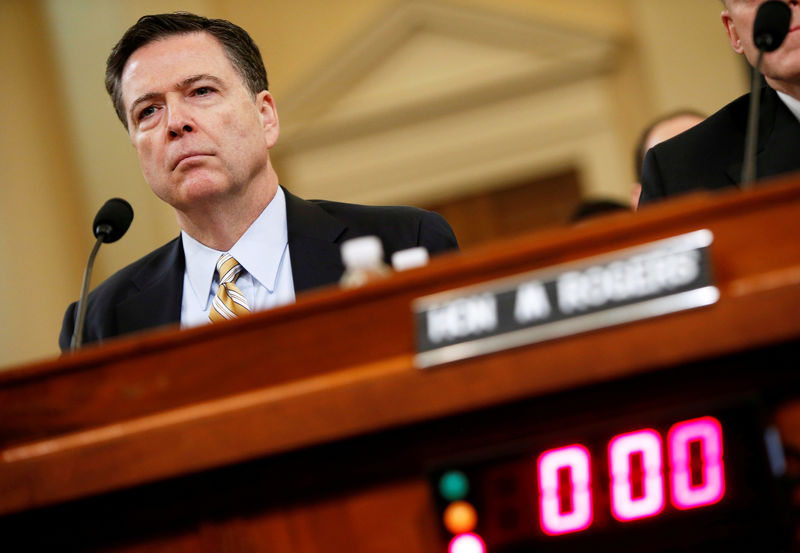By Julia Edwards Ainsley
WASHINGTON (Reuters) - President Donald Trump is still looking for a new FBI director more than three weeks after he fired James Comey, and sources familiar with the recruiting process say it has been chaotic and that job interviews led by Trump have been brief.
Three close associates of three contenders for the job, all of whom have been interviewed by Trump, said the candidates were summoned to the White House for 10- to 20-minute conversations with Trump, Vice President Mike Pence and Attorney General Jeff Sessions.
Those conversations, which followed initial interviews at the Justice Department, have been light on questions about substantive issues facing the agency, the three associates said.
While the department has compiled a long list of candidates for the White House, there has been no “clear framework or logic for who was interviewed and why,” said one of the sources.
Another of the three sources described the process as chaotic and said that in one interview, Trump spoke mostly about himself and seemed distracted.
The White House declined to comment on the nature of the interview process. Spokesman Sean Spicer said on Friday that Trump continues to meet with candidates but would not give a timeline for choosing a nominee.
On May 18, Trump told reporters he was "very close" to sending a nomination for a new director of the Federal Bureau of Investigation to the Senate. At the time, former Senator Joe Lieberman was a front-runner for the post. He withdrew his name from consideration on May 25.
At least a dozen other people have been under consideration, according to a White House spokeswoman, but not all have been interviewed by Trump.
Republican Representative Trey Gowdy was under consideration but he said on May 15 he was not interested.
The next day, Republican Senator John Cornyn, also a contender, said he would stay in the Senate.
Spicer said on Tuesday that Trump planned to meet that afternoon with John Pistole, a former deputy director of the FBI and head of the Transportation Security Administration, and Chris Wray, former head of the Justice Department's criminal division.
The White House has said Trump also interviewed Lieberman, former Oklahoma Governor Frank Keating, acting FBI Director Andrew McCabe and former FBI official Richard McFeely.
Trump reportedly told Russian officials during a visit to the White House on May 10 that firing Comey the previous day relieved "great pressure" the president was feeling from an investigation of possible ties between his election campaign team and Russian officials.
The New York Times first reported that, in his remarks to the Russians, Trump called Comey "crazy, a real nut job."
Trump has denied any collusion between Russia and his presidential campaign. He has repeatedly questioned the U.S. intelligence finding that Russian President Vladimir Putin directed an operation intended to swing the election in Trump's favor against Democratic rival Hillary Clinton.
Russia has repeatedly denied any effort to interfere in the U.S. election, but Putin said on Thursday some Russians might have acted on their own without their government's involvement.

Comey is set to testify on Thursday before the Senate Intelligence Committee in open session and in private. Comey will reportedly talk about pressure from Trump that he drop his investigation into former national security advisor Michael Flynn.